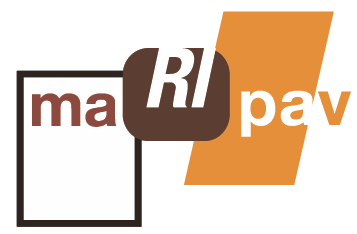Through the united states of america, low income communities find it difficult to access inexpensive credit and, as a result, build wide range. Truly, the historical framework of disinvestment during these forums is a primary motorist, as well as the emergence of alternative financial providers (AFSP) that prey upon these forums by taking advantage of the present credit space, typically locating her high-interest treatments in banking deserts.
While there are various different AFSPs, payday lenders attended under analysis recently with their part in wealth-stripping low income forums. Specifically, through exorbitantly high interest short term financial loans, predatory payday lenders lead anyone into understanding commonly labeled as a “debt trap,” a vicious cycle whereby the borrower removes that loan they are unable to manage, generating exorbitant charge imposed by the loan provider once the debtor is not able to generate an on-time cost. Considering that numerous borrowers cannot access inexpensive credit from other means, these borrowers are compelled to “flip” their financial loans, taking out another cash advance to pay for the expenses on the initial loan additionally the costs. Nationwide, this trend possess gained the attention associated with the customer monetary safeguards Bureau, which in its Data Point document on Payday financing observed that 80 per cent of payday loans become folded more or with another mortgage within week or two with the original mortgage. Considering that payday loans Oregon the payday credit market is believed to be around $38.5 billion yearly, plus some 75 percentage of payday loan providers’ full income originate from rollover financing, the matter of predatory lending is vital to nonprofit organizations and coalitions centered on asset building, wide range building, and monetary safety efforts.
Although some regional governing bodies (discover NPQ’s previous post on Caddo Parish fee’s effort to maximum predatory credit) and legislatures across the country accept the detrimental impacts that pay day loans has on the constituents, above 30 says at this time let high-interest payday loans, because of the typical APR getting 391 percentage according to the heart for trusted financing, the nation’s respected nonprofit centered on guaranteeing a fair, inclusive financial market. However despite claims with current payday lending statutes, the effect of an increasingly strong AFSP lobby aims to remold current laws and regulations made to rein in deleterious ramifications of predatory financing. In Fl, as an example, the state senate held a Saturday period latest sunday and passed SB 920 by a vote of 31–5. This legislation would increase the limits for short term payday advance loan from $500 to $1,000 and offer the existing repayment phase from 31 period to ninety days.
Though proponents of the legislation believe these changes will assist low-income forums in accessing much-needed funds, people and customer protection groups precisely identify this rules as a concerted work to worsen the consequences of wealth-stripping by raising the number of people ensnared in financial trouble barriers while additionally coating the purse of payday lenders.
Similar payday credit laws passed in Fl in 2001 and is marketed as a measure avoiding loans barriers, but met with the precise opposite influence: the typical APR of an instant payday loan in Fl is 278 percentage, over $2.5 billion in fees alone have already been removed from Florida forums by payday loan providers since 2005, and a written report in 2015 showed that 83 per cent of Fl payday advance loan had been enabled to Floridians caught in seven or even more financing.
This type of legislative wide range stripping are annoyed by limitations within the capabilities of national customer coverage attempts to impose guidelines, and the budding revival of rent-a-bank laws (HR 3299), which seeks to allow payday and predatory lenders to circumvent established condition rate limit guidelines by originating their particular debts through financial institutions. There’s also a proliferation of various other AFSPs, like business advance loan (MCA) suppliers, which desired her debt barriers on startup and early-stage small enterprises with limited credit accessibility and therefore further restrain the capability of lower income anyone and communities to succeed.
Used collectively, nonprofits and community-based projects that address economic self-sufficiency and poverty must continue to consider the programs that hinder their particular effort. Having objective at AFSPs is one prospective leverage point for neighborhood forums to take into consideration, specifically as they acknowledge the aggregated influence of AFSPs on financial transportation. There are some types of new methods to building money through revolutionary proper partnerships with people banks and credit score rating unions and nonprofits must turn to these along with other surfacing sizes as how to manage the damaging financial devices having grown from present credit score rating spaces. By addressing these unfavorable feedback loops and using a vital lens to spot and discover forces that impact the overall program, nonprofits can deal with the root causes and later enhance their as a whole effects.—Derrick Rhayn
